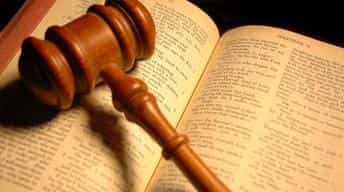- Hotline+971 50 27 28 29 1
- for Individual offices click here


STA Law Firm has a team of settlement experts to represent secured creditors, debtors, trustees, equity holders and suppliers....
Read more information
Corporate Law Firm in UAE-& across MENA. Corporate Lawyers in Dubai...
Read more information
STA Law firm has a dedicated team of franchise lawyers who advises and counsels the franchise arrangements, structuring franchise programs, franchise network and distribution. ...
Read more information
STA - Expert Team of Commercial & Contracts Lawyers in Dubai & UAE...
Read more information
STA Law Firm is one of the leading law firm in Banking and Finance, Capital Markets, DIFC, Compliance and Regulatory practices. ...
Read more information
Contact our expert team of property lawyers in Dubai & across UAE....
Read more information
STA Law Firm's team of employment lawyers in Dubai, Abu Dhabi and across UAE advise universities, engineering & shipping firms, banks, & other industries...
Read more information
Intellectual Property Law Firm. Patent, Trademark Registration UAE...
Read more information
Technology & Media Law Firm in Dubai - Expert Lawyers...
Read more information
STA has a dedicated team of fraud & criminal lawyers in Dubai & UAE...
Read more information
Shipping Law Firm in Dubai | Offices - Middle East, Asia & Europe....
Read more information
Mergers and Acquisitions Law Firm in Dubai and United Arab Emirates...
Read more information
In today’s competitive business environment the mining industry is becoming a very attractive option for foreign investors. New projects are being launched, but we can appreciate that foreign investors will find the mining industry......
Read more information
STA lawyers recognize that the healthcare industry comprises of a variety of individuals, professions, teams and organisations that may need our legal services. We have considerable knowledge and experience......
Read more information
Clients rely on and trust STA's banking lawyers to take a timely, practical and individually tailored approach to meet specific requirements of our clients. ...
Read more information
Insurance Practice at STA - Expert Insurance Lawyers in Dubai & UAE...
Read more information
STA is a leading technology and media law firm in Dubai & across UAE...
Read more information
Hospitality Lawyers in UAE - Expert Advice to Hospitality Industry...
Read more information
STA’s seasoned team of property lawyers in Dubai, Abu Dhabi and across the UAE have thorough and extensive knowledge and experience in dealing with construction and real estate law matters. Learn more about our expertise and our team of property lawyers...
Read more information
STA's lawyers in UAE specialize in all areas of contentious as well as non-contentious discipline in oil and gas industry and advice on both upstream and downstream work. Consult one of our Senior Energy Lawyers in Dubai or other offices today!...
Read more information
Combining variety of practice disciplines to provide extensive advice and counsel to clients, STA’s FMCG practice represents companies in a broad range of industries including large scale franchisors, Fortune 250, and multinationals ...
Read more information
Shipping and Maritime Law Firm - UAE, Middle East, Asia and Europe. Expert advice on ship building, ship fiance, sale and purchase, compliance, due diligence and more. Our lawyers advice on all types of vessel including bulk carriers, tankers, cruise ships, offshore rigs and support vessels....
Read more informationSTA's Team of Lawyers in Abu Dhabi, Bahrain, Doha, UAE, Luxembourg, Moscow, RAK, Sharjah, and Singapore. Find a Lawyer. ..
Read more informationThe Supreme Court of Canada has ruled that non-citizens and non-residents can assert aboriginal rights under the Constitution of Canada
 Non-citizens and non-residents can invoke an aboriginal right under the constitution, the Supreme Court of Canada ruled on Friday.
Non-citizens and non-residents can invoke an aboriginal right under the constitution, the Supreme Court of Canada ruled on Friday.
The case concerned Section 35 of the Canadian Constitution's definition of "Aboriginal peoples of Canada." The fundamental question, according to the court, is whether people who are not Canadian citizens or who do not live in Canada can exercise this privilege.
The case involved Richard Desautel, an American citizen who shot and killed an elk in British Columbia without a hunting license in 2010. He is a member of the Colville Confederated Tribes' Lakes Tribe. He was found guilty of hunting without a licence or proof of British Columbia citizenship, despite claiming that he was practicing his aboriginal right to hunt in his ancestors' ancestral territories under section 35 of the Act. He said that the spot where he shot and killed the elk was his land.
The majority of the court decided that "Aboriginal peoples of Canada" refers to the modern-day descendants of aboriginal groups that lived on Canadian soil at the time of European contact. Even if those communities are now situated outside of Canada, this was the case. People who are not Canadian citizens and do not live in Canada can exercise an aboriginal right guaranteed by the Canadian Constitution, according to Justice Malcolm Rowe. Desautel was found to be exercising an aboriginal right, and the trial judge correctly acquitted him of all charges.
.png) “While Aboriginal communities outside of Canada can claim and hold section 35 rights, it does not follow that their rights are the same as those of communities within Canada,” Rowe said in response to questions about the potential implications of groups like the Lakes Tribe being considered aboriginal peoples of Canada. Although the test for an Aboriginal right is the same in all countries, the circumstances of communities outside of Canada can result in different outcomes.”
“While Aboriginal communities outside of Canada can claim and hold section 35 rights, it does not follow that their rights are the same as those of communities within Canada,” Rowe said in response to questions about the potential implications of groups like the Lakes Tribe being considered aboriginal peoples of Canada. Although the test for an Aboriginal right is the same in all countries, the circumstances of communities outside of Canada can result in different outcomes.”